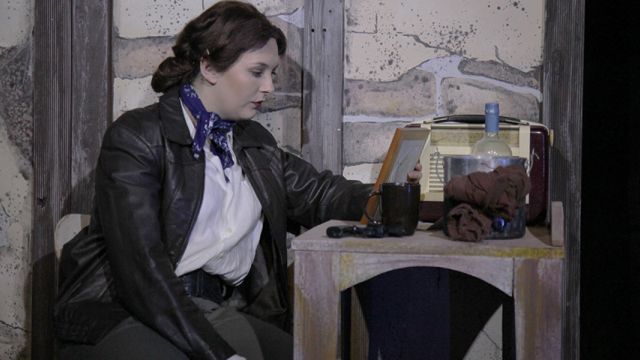Nancy Wake: The White Mouse
Nancy Grace Augusta Wake, AC, GM was born in 1912 in New Zealand. Some two years later, her family moved to Sydney where she grew up, and for this reason, we have long claimed Nancy as an Australian. Also known as Madame Fiocca and Nancy Fiocca, Hélène by the British Special Operations Executive, Andrée by the French Resistance and White Mouse by the Gestapo in France, she was a nurse who retrained and worked in the 1930s for Hearst newspapers as a journalist. This became a useful ‘cover’ when she joined the French Resistance and later the Special Operations Executive (SOE) during World War II, as women were constantly underestimated as spies and fighters. Wake was living in Marseille with her French industrialist husband, Henri Fiocca, when the war broke out and appalled by the treatment of the Jews at the hands of the Nazis, after the fall of France to Nazi Germany in 1940 she became a courier for the French resistance movement. In 1942 she fled to London and after reaching Britain, joined the Special Operations Executive and was trained in several programs. Renowned as a courageous, fearless and fully trained fighter, it was reported that she ‘put the men to shame by her cheerful spirit and strength of character.’
It is her story between 1939 and 1944 that South Australian writer and Director Peter Maddern has developed for the 60-minute show, Nancy Wake: The White Mouse.
Goodwood Theatres provide excellent theatre spaces and a garden that invites patrons to linger in this community complex. The venue is a good size for this production and the morning matinee had 60 appreciative patrons. There is much scope in venues like this to showcase a diverse range of Fringe shows, with them currently hosting 6 very different productions ranging from biographical pieces to challenging social commentary and rollicking humour.
The opening stage is stark, then filled with wartime French music, followed by the sound of planes flying low. They are of course, dropping our fearless heroine, by parachute, and so the story begins. We hear an Aussie sounding voice off stage and a ripe collection of expletives. Nancy Wake has arrived. Clad in overalls, she is there to meet with the resistance, to train them, work with them and risk her life every day. She is strong, controversial, not easily bowed, and, as the Resistance leader describes her, ‘She speaks for London’.
Wake is played by Emily-Jo Davidson. Currently studying primary education/arts at Flinders University, Davidson is a skilled actor and also musical performer who oozes youthful energy and exuberance in her portrayal. She fearlessly delivers well-paced dialogue and monologues to the audience and we get the feeling that she, and Wake may be a perfect match. Currently also winning acclaim in The Appraisal, she is an actor to watch.
This piece is a three-hande,r with Charlie Herkes, who is a classically trained ballet dancer and actor and Stephen Schofield, who is an actor, writer, and singer, both undertaking two roles. A regular to Maddern’s work, Schofield is also appearing as Wilkins the Photographer at this venue. Each delivers strong, nuanced performances as each of their characters. Herkes is particularly powerful as a young, arrogant Nazi soldier.
For me, my ability to connect with a play hinges on supporting me in developing a consistent picture, so details such as costume, props and accent are important. Paying attention to these things would, I believe take this good show to the realm of excellent. Nylon pop fastener parkas were not of the era, nor were the LeSac style backpacks. Men and women’s trousers of the time were wide legged and high waisted, shirts were fully tucked in and glasses were of a particular shape and were glass. Both 1930’s and 1940’s engagement and wedding were narrow and small and BBC broadcasts had cut glass English, not Australian accents in the 1940’s; additionally, a character portraying an Australian, has a discernibly Australian, not English accent. Having listed what some will see as nit-picking, the colourised 1939 French film clip was such an excellent scene setter and was a delightful inclusion.
The play describes the violence of war and torture, and Scholfield, in character as the resistance leader, reminds us that, ‘Nations may triumph, but for citizens, war never ends well’. For Wake whilst she received 6 awards from other countries for her war service, it was not until 2004 that she became Dame Nancy with the awarding of the Companion of Australia Order, and like so many women who served in both wars of the 20th century, we have had to wait for writers like Maddern to have the courage and insight to tell their stories of bravery and sacrifice. This is a good story and an even better reminder of the human spirit. Hurry as the season is short.
Jude Hines
Subscribe to our E-Newsletter, buy our latest print edition or find a Performing Arts book at Book Nook.

